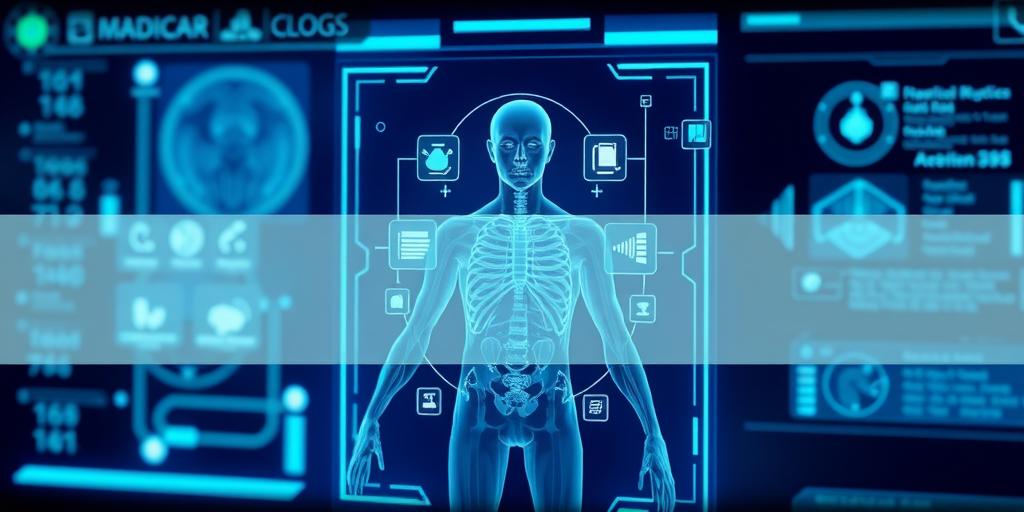AI in Global Healthcare: Diagnosis and Treatment by 2025
Artificial Intelligence (AI) is rapidly transforming numerous sectors, and healthcare is no exception. By 2025, AI is poised to revolutionize diagnosis and treatment on a global scale, offering unprecedented opportunities to improve patient outcomes and streamline healthcare delivery.
Current State of AI in Healthcare
Currently, AI applications in healthcare are gaining traction, focusing on:
- Diagnostic Tools: AI algorithms analyze medical images (X-rays, MRIs, CT scans) to detect anomalies, often with greater accuracy and speed than human radiologists.
- Drug Discovery: AI accelerates the identification of potential drug candidates by analyzing vast datasets of molecular compounds and biological interactions.
- Personalized Medicine: AI tailors treatment plans based on individual patient data, including genetics, lifestyle, and medical history.
- Administrative Efficiency: AI automates routine tasks such as appointment scheduling, billing, and record keeping, freeing up healthcare professionals to focus on patient care.
AI-Driven Diagnosis by 2025
By 2025, AI is expected to significantly enhance diagnostic capabilities through:
- Advanced Image Analysis: AI will provide more detailed and accurate interpretations of medical images, enabling earlier detection of diseases such as cancer, Alzheimer’s, and cardiovascular conditions.
- Predictive Diagnostics: AI algorithms will analyze patient data to predict the likelihood of developing certain diseases, allowing for proactive interventions.
- Remote Diagnostics: AI-powered tools will facilitate remote diagnosis, particularly in underserved areas, by enabling real-time analysis of patient data collected through wearable devices and telehealth platforms.
AI-Driven Treatment by 2025
AI will also transform treatment methodologies through:
- Robotic Surgery: AI-guided robots will perform complex surgeries with greater precision and minimal invasiveness, reducing recovery times and improving patient outcomes.
- Personalized Treatment Plans: AI will refine personalized medicine by continuously analyzing treatment responses and adjusting therapies in real-time.
- Drug Optimization: AI will optimize drug dosages and combinations based on individual patient profiles, minimizing side effects and maximizing therapeutic efficacy.
- Mental Health Support: AI-driven chatbots and virtual therapists will provide accessible and personalized mental health support, particularly for individuals in remote or underserved areas.
Challenges and Considerations
Despite the immense potential, several challenges must be addressed:
- Data Privacy and Security: Protecting sensitive patient data is paramount. Robust security measures and adherence to privacy regulations (e.g., HIPAA, GDPR) are essential.
- Regulatory Frameworks: Clear regulatory guidelines are needed to ensure the safe and ethical deployment of AI in healthcare.
- Bias and Fairness: AI algorithms must be developed and trained on diverse datasets to avoid biases that could lead to unequal treatment.
- Integration with Existing Systems: Seamless integration of AI tools with existing healthcare infrastructure is crucial for widespread adoption.
- Training and Education: Healthcare professionals need adequate training to effectively use and interpret AI-driven insights.
Conclusion
By 2025, AI is set to revolutionize global healthcare, offering unprecedented opportunities for enhanced diagnosis and treatment. While challenges related to data privacy, regulation, and bias must be addressed, the potential benefits are undeniable. As AI continues to evolve, its integration into healthcare promises to improve patient outcomes, reduce costs, and transform the delivery of medical services worldwide.
